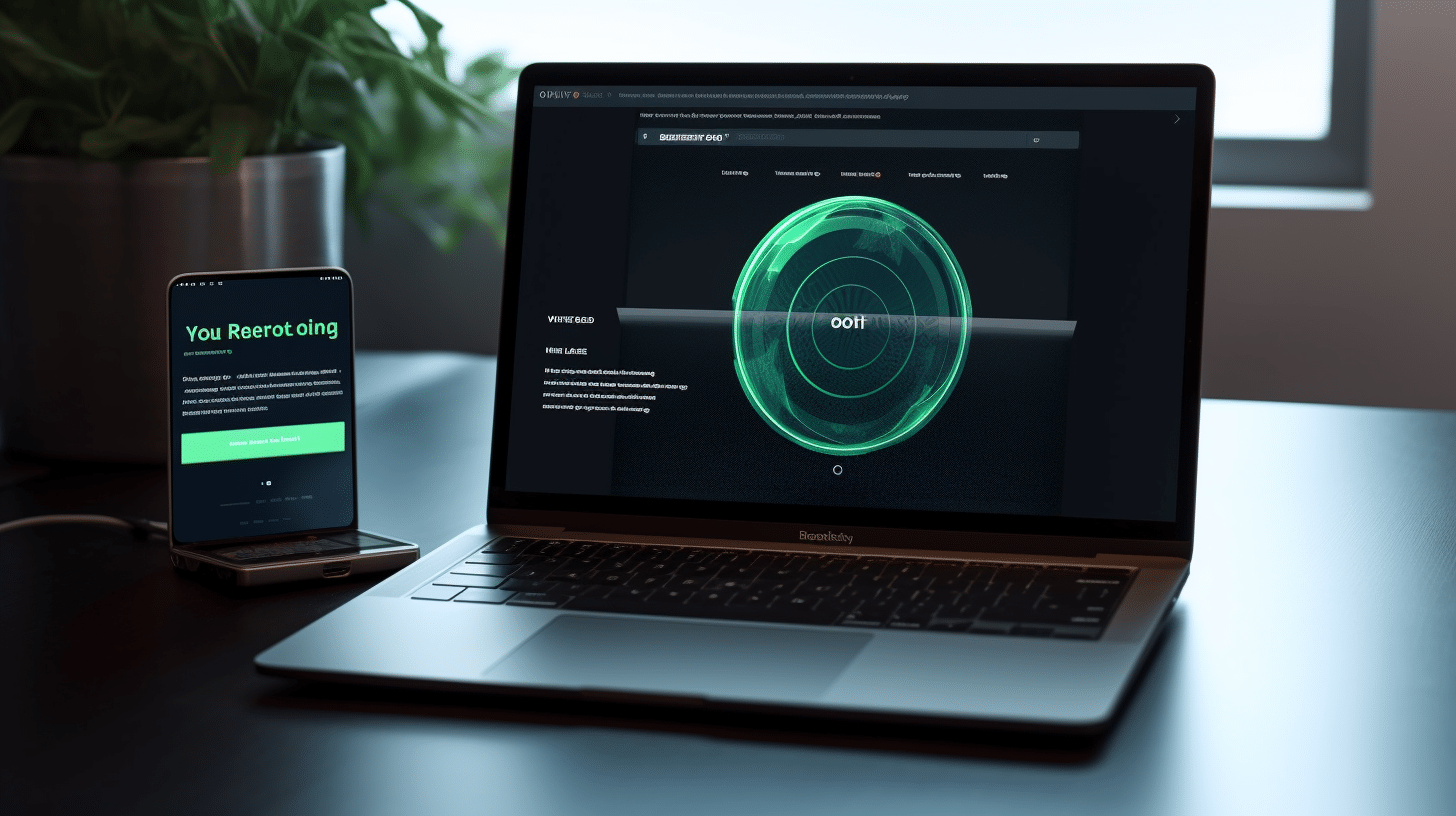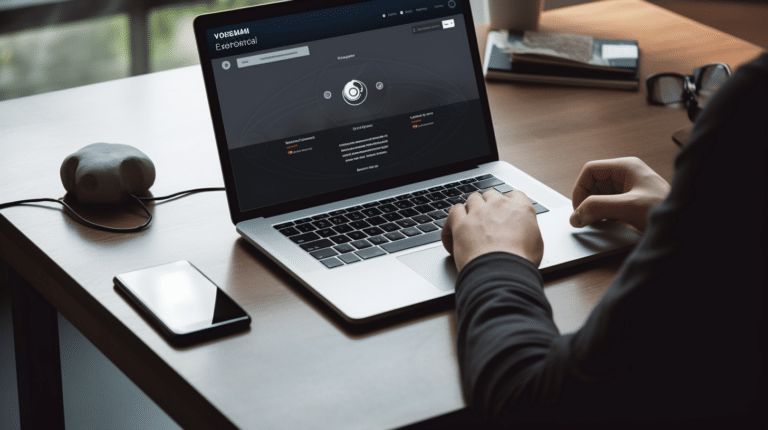The world of torrenting can be complex and filled with potential risks. While it provides a convenient avenue for sharing and downloading files, it’s essential to understand that torrenting can expose you to cybersecurity dangers and legal complications. To mitigate these risks, many users consider using a virtual private network (VPN) for torrenting. But do you really need a VPN to torrent safely, and can it guarantee your security?
VPNs have become increasingly popular for securing your internet traffic and maintaining privacy while online. They are commonly used for torrenting due to their ability to hide your IP address and encrypt your data, providing an additional layer of protection from malicious actors and potential legal repercussions. However, not all VPNs are created equal, and it’s crucial to choose a reliable and trusted VPN service to ensure the safety and privacy of your torrenting activities.
Key Takeaways
- Torrenting can be convenient but poses potential cybersecurity and legal risks.
- VPNs help protect torrenting users by hiding their IP address and encrypting data.
- Choose a reliable and trusted VPN service to ensure security and privacy while torrenting.
Understanding Torrenting
Torrenting is a popular method of downloading and sharing files online using peer-to-peer (P2P) technology like BitTorrent. The concept is simple: users connect to each other directly in a network, without relying on a central server to host the files. This decentralized approach allows for efficient file-sharing and is the basis for many torrent sites, some of which are considered the best sources for various content.
When you download a torrent file from a torrent site, you essentially receive a set of instructions and metadata that points your BitTorrent software to the appropriate P2P network. A torrent file itself is relatively small and acts as a roadmap to the actual content you wish to download. It is this file that connects you to multiple P2P servers, known as peers, which then share the content file you’re looking for in bits and pieces.
The P2P file-sharing process happens in a swarm, meaning that your BitTorrent software downloads small chunks of data from multiple peers simultaneously and then assembles them into a single complete file. During this process, you’re not just downloading from peers but also uploading files to them, making you part of the network. The process uses P2P servers, which enable efficient, fast, and distributed downloads.
However, despite the benefits of torrenting, there are challenges when it comes to privacy, security, and legality. Many content creators and copyright holders do not approve of their work being distributed through torrent sites without proper licensing and monetary compensation. This has led to increased scrutiny and legal issues for both torrent site providers and users.
In order to safely and anonymously torrent content, many users turn to virtual private networks (VPNs) for protection. A VPN encrypts your internet connection and masks your IP address, helping to protect your identity while torrenting. By using a VPN, you can maintain a neutral and confident stance, knowing that your torrenting activities are secure and private.
It’s important to note that torrenting can be done legally if you’re sharing content that is not subject to copyright restrictions or with proper permission from copyright holders. In such cases, using a VPN can still offer valuable security and privacy benefits, ensuring that you can experience torrenting with confidence and peace of mind.
Exploring the Need for VPN in Torrenting
Torrenting is a popular peer-to-peer (P2P) activity, but without proper security measures, it can expose users to various risks, such as hacking, malware, or legal issues. Using a VPN for torrenting can effectively improve your security, privacy, and anonymity.
A Virtual Private Network (VPN) encrypts your internet connection, making it harder for anyone to monitor your online activities. When torrenting, a VPN hides your IP address, preventing ISPs, hackers, and copyright holders from tracking you down. This is particularly crucial since torrenting often involves sharing copyrighted materials, which can lead to fines or legal troubles if done without proper permission.
Besides security, a VPN can also increase your privacy. By masking your IP address and using encryption, a VPN ensures that your torrenting activities are anonymous and safe from prying eyes. This protects you from targeted advertising, censorship, and other potential interferences in your digital life.
However, not all VPNs are suitable for torrenting. It’s essential to pick a VPN that supports P2P file sharing and has a strict no-logs policy. This means that the VPN provider does not store any data about your online activities, further safeguarding your privacy.
In addition to security and privacy, using a VPN for torrenting can improve your internet experience. Some ISPs may throttle your bandwidth when they detect torrenting activities. With a VPN, your ISP cannot see that you are torrenting, so you can enjoy faster and more stable connections for your downloads.
To sum up, using a VPN for torrenting is a wise choice to maintain security, privacy, and anonymity. By selecting a reliable VPN provider with a strong commitment to user privacy, you can enjoy the benefits of P2P file sharing without putting yourself at risk.
Dangers of Torrenting Without a VPN
Torrenting without a VPN exposes you to multiple risks that can compromise your privacy and security. One major concern is revealing your IP address to your ISP, other torrent users, and even government authorities. Using a VPN effectively masks your IP address and encrypts your torrent traffic, making it difficult for anyone to link your online activities to your real identity.
Additionally, ISPs actively monitor their customers’ online activities and may take action if they detect illegal torrenting or copyright infringement. In some cases, this can lead to bandwidth throttling, warnings, or even legal consequences.
Another potential risk of torrenting without a VPN is falling victim to hackers, who can take advantage of your exposed IP address to launch targeted cyberattacks. These attacks may include breaching your personal accounts or injecting harmful viruses and malware into your system.
Torrenting also increases the likelihood of downloading malicious content. Hackers often disguise malware or viruses as popular files and hide them in torrent downloads. A VPN alone may not protect you from such threats, but it adds an extra layer of security by hiding your IP address, therefore limiting your exposure to cybercriminals.
Finally, when you torrent without a VPN, you might inadvertently download copyrighted material, which constitutes piracy. This can result in legal repercussions and fines, especially if you reside in a country with strict anti-piracy laws.
To mitigate these risks, it’s advisable to always use a reliable VPN service when torrenting and be cautious when downloading content from unfamiliar sources or when reading comments about specific files. A trustworthy VPN will not only protect your privacy but also help you torrent safely and responsibly.
Key Features of a Torrenting VPN
It’s crucial to choose the right VPN for torrenting to safeguard your files and privacy online. That’s why we’ve compiled some key features to look out for.
- Kill Switch: An essential VPN component, the kill switch avoids exposing your IP address if the connection accidentally drops. It automatically disconnects your device, ensuring your activity remains private.
- Security and Encryption: High-quality VPNs utilize strong encryption protocols like OpenVPN and WireGuard to protect your traffic. Both of these protocols provide excellent security and encryption levels to keep your activity anonymous.
- No-Logs Policy: A trustworthy torrenting VPN should have a transparent no-logging policy, meaning it won’t store your browsing activity data. This policy ensures your information won’t be shared or accessed by third-party entities.
- Protection Against DNS Leaks: DNS leak protection prevents unencrypted requests from accidentally leaving the secure tunnel, leading to exposed DNS queries. This feature mitigates the risk of information leaks and maintains your privacy while torrenting.
- Server Locations: Having numerous server locations worldwide, including countries with torrent-friendly laws, provides flexibility in choosing the best server for your needs. This helps in optimizing speed and avoiding server congestion.
- Split Tunneling and Port Forwarding: These features allow you to customize your VPN connection further. Split tunneling enables you to allocate specific apps through the VPN, while port forwarding optimizes your connection by directing incoming connections to bypass your firewall securely.
By keeping these key features in mind, you can confidently choose a VPN that meets your torrenting requirements while maintaining privacy, security, and a seamless connection.
Exploring Free and Paid VPNs for Torrenting
When it comes to torrenting, using a VPN can provide an added layer of security and privacy. Both free and paid VPN options are available, each with their own advantages and drawbacks.
Free VPNs may be appealing for their no-cost approach to online security, but they often come with limitations such as limited server availability, data caps, and slower speeds. Additionally, some free VPNs may not offer the robust privacy policies or advanced security features found in paid options. Popular free VPNs for torrenting include ProtonVPN with its limited free plan and robust policies.
Paid VPNs, on the other hand, typically provide a wider array of servers to choose from, faster speeds, and more advanced security features. Leading options for torrenting include ExpressVPN, NordVPN, CyberGhost, and Surfshark VPN. These providers offer features such as Double VPN, Onion over VPN, and strong encryption protocols.
It’s essential to consider the payment method when choosing a VPN for torrenting. Some providers, like ExpressVPN and NordVPN, accept Bitcoin payments, which can provide an additional layer of anonymity for users.
In summary, when exploring VPN options for torrenting, it’s crucial to weigh the pros and cons of free and paid options. Free VPNs may be suitable for casual users with minimal security requirements, but a paid VPN like ExpressVPN, NordVPN, CyberGhost, or Surfshark is recommended for those seeking a more secure and reliable solution. Be sure to carefully research each provider’s features, payment options, and privacy policies to find the best fit for your torrenting needs.
How to Use a VPN for Torrenting
Using a VPN for torrenting can provide an additional layer of privacy and security when downloading and uploading files. To effectively use a VPN while torrenting, follow these steps:
- Choose a reliable VPN service: Not all VPNs are suitable for torrenting. Some do not allow it, while others might not prioritize your privacy. It is essential to select a VPN service known for its robust security features and no-log policies. Some examples of reliable VPNs for torrenting include ExpressVPN, NordVPN, and CyberGhost.
- Install the VPN software: Once you have chosen a VPN service, download and install the software on your devices. Many popular VPNs support multiple platforms such as Windows, macOS, Android, and iOS.
- Select a torrent client: While there are numerous torrent clients available, the most popular ones include uTorrent, qBittorrent, and Vuze. Consider open-source and lightweight options that prioritize privacy and security.
- Configure VPN settings: In your VPN software, locate settings that are relevant to torrenting. Make sure to enable the Kill Switch feature, which automatically disconnects your internet connection if your VPN connection drops. This prevents your IP address from being exposed. Also, enable UPnP (Universal Plug and Play) port mapping for automatic port forwarding on your router, improving connection speeds.
- Select a suitable server location: Connection speeds can vary based on the server’s location and your proximity to it. Choosing a server close to your physical location may result in higher speeds. Sometimes, specific servers are optimized for torrenting, so look for those when available.
- Test your connection and speed: Before starting to torrent, it’s crucial to ensure that your VPN is working correctly. You can visit a site like ipleak.net to check for DNS or WebRTC leaks. Additionally, you can use a speed test tool to measure your connection speeds while connected to the VPN server.
- Launch your torrent client: After verifying your VPN connection and speeds, open your chosen torrent client such as uTorrent or qBittorrent. From here, you can download and upload files with an added layer of protection from your VPN service.
Remember to follow any legal and ethical guidelines when using a torrent client in combination with a VPN. Downloading copyrighted material without permission is against the law and not recommended.
Cybersecurity and Antivirus Considerations
When it comes to torrenting with a VPN, cybersecurity and antivirus considerations are crucial to ensure a safe and secure experience. VPNs play an integral role in protecting your privacy online by hiding your IP address and encrypting your data, making it much more difficult for prying eyes to track your activities. Using a secure VPN is essential, but it’s not the only measure you should take.
Beyond using a VPN, maintaining robust cybersecurity practices is crucial, as torrenting can expose your system to various risks, including malware and cyber attacks. Downloading files from unknown sources or from users with questionable reputations can place your system at risk of being infected with malicious software.
To protect yourself from these threats, it’s essential to have a reliable antivirus software installed on your device. A good antivirus program will continuously scan your files and system for any signs of malware, alerting you to potential threats before they can wreak havoc on your device. Some VPN providers also include antivirus features as part of their service offerings, providing an additional layer of security.
When choosing a VPN for torrenting, it’s critical to select one with a strong commitment to user privacy and a strict no-logs policy. This ensures that your online activities are not being monitored or stored by your VPN provider, minimizing the risk of your personal information being exposed or compromised.
In summary, using a VPN when torrenting is a crucial component of maintaining your online security. However, to fully protect yourself, it’s essential to pair your VPN usage with comprehensive cybersecurity practices, including the use of antivirus software and safe torrenting habits. With these measures in place, you can confidently and securely participate in torrenting activities.
Legalities and Ethical Considerations
Using a VPN while torrenting is legal in most countries, as the act of using a VPN itself is not considered illegal. According to Tom’s Guide, it is entirely legal to use a VPN to access torrents. However, it’s essential to be aware of the content you are torrenting, as different legislations apply based on the material being shared.
Illegal torrenting refers to the act of downloading or sharing copyrighted material, such as music or movies, without permission from the copyright holder. Engaging in piracy can lead to legal consequences, and using a VPN will not protect you from potential lawsuits or fines if you engage in copyright infringement activities. Depending on the region, illegal torrenting penalties can vary, but it’s not uncommon for governments to enforce fines or even imprisonment for offenders.
The ethical implications of torrenting copyrighted content should also be considered. Downloading music, movies or software without proper licensing from the content owner deprives creators and producers of their deserved income. It hurts the entertainment industry by reducing revenues and can impact the availability and quality of future content. Respecting copyright laws and the intellectual property rights of others promotes a healthier creative ecosystem and ensures that more quality content can be produced and enjoyed worldwide.
On the other hand, it’s essential to remember that not all torrenting activities involve piracy. Sharing files without copyright restrictions, such as free and open-source software, documentaries and various public domain works, is perfectly legal and can be protected by a VPN. In such cases, using a VPN service can ensure your privacy from potential monitoring and interference by broadband providers or other parties.
To sum up, while using a VPN to torrent is generally legal, engaging in illegal torrenting activities can still lead to legal consequences, regardless of your VPN use. It’s crucial to be vigilant and respect intellectual property laws to ensure a healthy environment for entertainment and technology development alike.
Miscellaneous Tips and Tricks
When using a VPN for torrenting, it’s crucial to be aware of certain tips and tricks to optimize your experience. While torrenting on any platform, including Linux, ensure your VPN is capable of handling P2P traffic. This is essential since not all VPNs allow P2P traffic, and using one not designed for it could result in slower speeds and possible tracking issues.
Another aspect to consider is WebRTC leaks. While connected to a VPN, your real IP address should be hidden. However, some browsers may reveal your IP address due to WebRTC leaks, compromising your privacy. To prevent this, it’s advisable to use a VPN that offers WebRTC leak protection or disable WebRTC in your browser.
Finding the best torrent search engines is also essential to streamline your torrenting experience. Popular and reliable options include The Pirate Bay, RARBG, and 1337x. These search engines can provide you access to a wide range of torrents, helping you find the content you’re looking for.
Lastly, be aware of internet censorship regulations in your country. Some countries have strict laws against torrenting and content sharing. Using a VPN can help bypass these restrictions, but it’s important to choose a VPN provider with a proven track record for user privacy and security.
By using the tips mentioned above, you’ll be able to torrent safely and efficiently with a VPN, minimizing the risks associated with online privacy and maximizing your torrenting experience.
Frequently Asked Questions
Is it safe to use a VPN for torrenting?
Yes, using a VPN for torrenting can significantly enhance your safety and anonymity online. A VPN hides your real IP address, which protects you from potential issues with copyright holders or monitoring agencies. Moreover, a quality VPN will encrypt your traffic, adding another layer of security and privacy.
What are the best VPNs for torrenting?
There are several VPNs that are well-suited for torrenting. Among the top-rated options is Surfshark VPN, which boasts good download and upload speeds, and strong latency results. It’s essential to pick a VPN that has a robust privacy policy and allows torrenting on its servers.
How does a VPN help with torrenting?
A VPN helps with torrenting by masking your real IP address and rerouting your internet connection through a secure, encrypted tunnel. This makes it difficult for third parties to track and monitor your online activities, including torrenting. By hiding your IP address, a VPN reduces the risk of exposure to monitoring agencies and copyright trolls.
Do all VPNs allow torrenting?
No, not all VPNs allow torrenting. Some providers have strict policies against P2P file-sharing and may block or limit your torrenting activities. It’s crucial to select a VPN service that explicitly permits torrenting on their servers and ensures adequate privacy and security measures.
How can I configure a VPN for torrenting?
Configuring a VPN for torrenting typically involves downloading and installing the VPN software onto your device, creating an account, and connecting to a server that supports P2P sharing. Some VPNs offer dedicated torrenting servers, while others include built-in settings for torrent clients. Always consult the VPN’s documentation or support for specific instructions and best practices.
What’s the risk of torrenting without a VPN?
Torrenting without a VPN exposes your real IP address to other users in the P2P network, which can lead to potential privacy and security issues. Copyright holders and monitoring agencies may track and identify users who share copyrighted materials illegally. By not using a VPN, you risk being targeted with cease-and-desist letters, fines, or even lawsuits related to copyright infringement.






